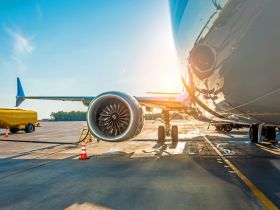British Airways owner IAG to use 10% biojet by 2030
London, (Quantum Commodity Intelligence) - British Airways owner IAG is to power 10% of its flights with sustainable aviation fuel (SAF) by the year 2030, a move that will require the purchase of 1 million mt of SAF per year, the company announced Thursday.
The company also said it will work with its suppliers to enable them to commit to achieving net-zero emissions by 2050 for the products and services they provide to IAG, which it said makes it the first airline group worldwide to extend its net-zero commitment to its supply chain.
IAG will invest $400 million in the development of sustainable aviation fuel in the next 20 years and is partnering with UK technology developer Velcoys and US firm LanzaJet.
The group comprises several European carriers in addition to British Airways, including Iberia, Vueling and Aer Lingus.
There are currently only limited mandated requirements from governments to use renewable fuels in aviation, such as the 0.5% requirement from Norway, but alongside maritime transport, aviation is receiving much policy attention as a key sector to decarbonise if net-zero emission economies are to be achieved.
"Government support is critical to meet this target by attracting investment to construct sustainable aviation fuel plants that will deliver enough supply for the airline industry, creating highly-valued green jobs and economic growth at global scale," said IAG in its statement.
With the right policy in place in the next ten years up to 14 SAF plants could be built across the UK, the company added.
The UK government said earlier this week that it will set the "world's most ambitious climate change target into law" to reduce emissions by 78% by 2035 compared to 1990 levels, including the UK share of international aviation and shipping emissions.
"IAG's agenda-setting commitment is clear evidence of the progress we are making," said Grant Shapps, UK Transport Secretary.
"These kinds of initiatives, along with our work through the Jet Zero Council, will help us rapidly accelerate towards our net-zero targets."

